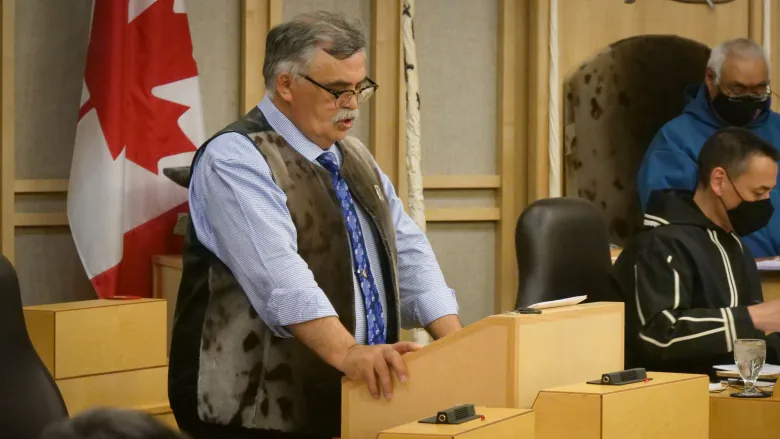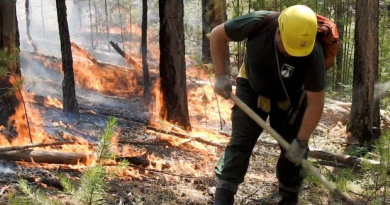Government in Canada’s Arctic Nunavut territory shelves infrastructure, housing projects over construction costs

Current construction costs mean territory can’t make good on housing goals
A number of infrastructure and housing projects in Nunavut have been cancelled or put on hold, and government ministers say rising construction costs are to blame.
The Legislative Assembly heard lastthe territory had not awarded contracts for the construction of public housing in Taloyoak, staff housing in Gjoa Haven and Kugluktuk, a new hamlet office in Sanikiluaq, a park office and visitors centre near Clyde River and diesel-solar power plant in Kugluktuk.
The reason why, in each case, was that contractors had asked for more money than the territory had planned.
“It’s very unfortunate that the prices for construction were well over the cost of the budgeted amount for those units,” said Lorne Kusugak, the minister responsible for housing, when probed about staff and public five-plexes promised in three communities.

Kusugak said the territory would not be proceeding with any of the 12 bids it had received for the five-plexes, but that the Nunavut Housing Corporation was looking at other ways to push some of the projects through.
Kusugak also said it would not be possible for the territory to make good on its promise to build 1,000 housing units in three years at the current construction cost of more than $5 million per five-plex.
“We will be working and are working with the private sector to see if there are some ways around the cost of construction,” he said.
A day later Kusugak, who is also the territory’s finance minister, tabled a $2.5 billion draft budget for the 2022-2023 fiscal year that included a $51.5 million investment into the Nunavut Housing Corporation.
Last year, 36 public housing units in the territory were not built because of high construction costs — attributed to the COVID-19 pandemic.
Other projects in limbo
A plan to replace the hamlet office in Sanikiluaq, after it was severely damaged in a 2020 storm the Legislative Assembly heard Wednesday, is also in limbo.
David Joanasie, the minister of community and government services, said the territory had previously approved spending $13 million on the project but that a pair of bids were “beyond that” and the territory would need to find more funding.
He also said the government had not decided whether it would retender the project yet.
A tender for the new Agguttinni Territorial Park and Visitors Centre near Clyde River, meanwhile, has been cancelled.
David Akeeagok, the minister of environment, said the bids were “just too expensive.” He said the Qikiqtani Inuit Association was trying to build a building with a “similar purpose” and the territory was trying to work with the association to see if it was possible to merge the projects instead.
The territory has also not awarded anyone with a contract to build a hybrid diesel-solar power plant in Kuguluktuk, which, as the community’s MLA Bobby Anavilok pointed out on Wednesday, is more than 50 years old and in need of replacement.
Craig Simailak, the minister responsible for the Qulliq Energy Corporation, said the tender lapsed because the prices came in over budget. He was not able to say when construction on a new power plant might begin. The work was expected to start this year.
Related stories from around the North:
Canada: Potential Canadian Northern Corridor would present unique security challenges and opportunities, say researchers, Eye on the Arctic
Norway: Thawing permafrost melts ground under homes and around Global Seed Vault in Svalbard, The Independent Barents Observer
Russia: 30–50% of critical northern infrastructure could be at high risk by 2050 due to warming, says study, Eye on the Arctic
United States: U.S. Navy to build airport infrastructure in North Norway to meet upped Russian submarine presence, The Independent Barents Observer



